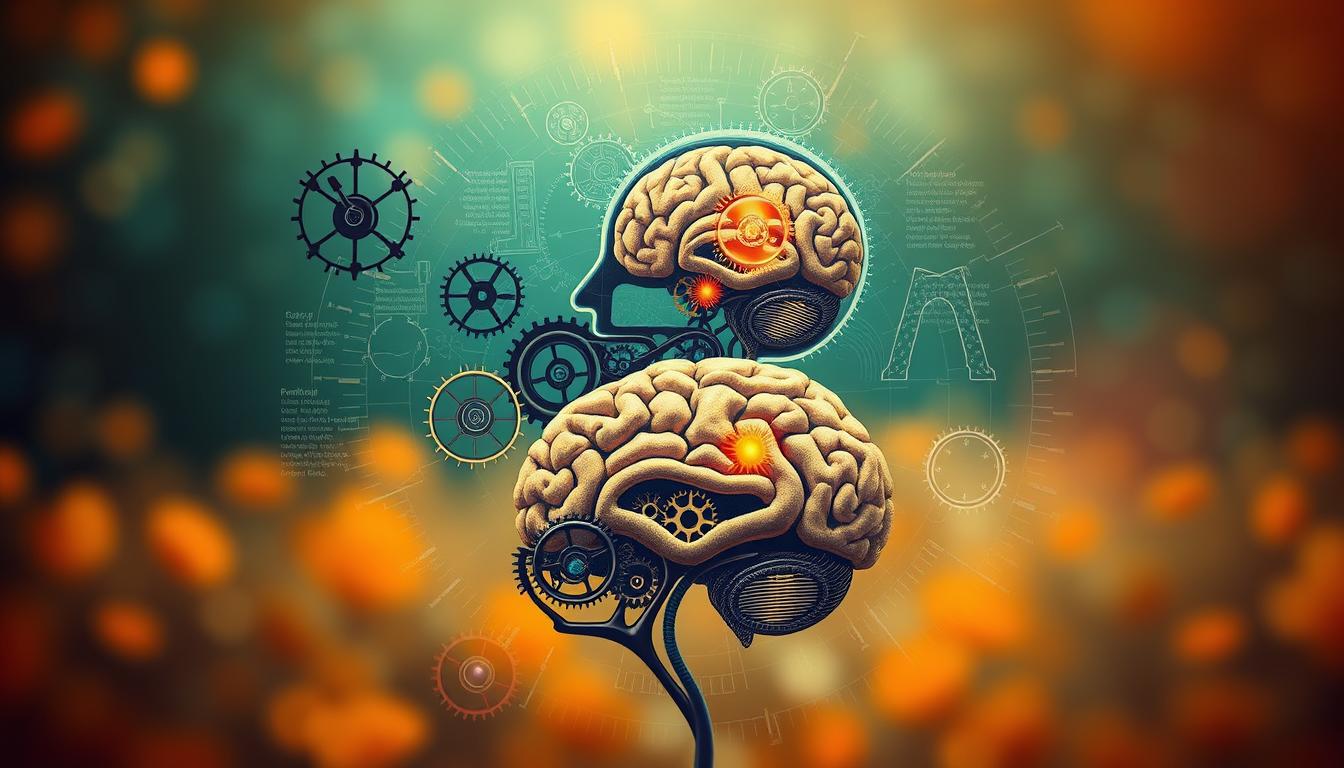Your body has an amazing internal clock that never stops. It controls when you feel tired, hungry, or most awake. Scientists found that these natural cycles affect almost every cell in your body.
Chronobiology has shown us how these internal clocks work. It reveals that our body’s timing is controlled by light and darkness. This knowledge has changed how we view sleep, health, and being at our best.
Knowing your body’s natural timing can change your life. It can improve your sleep and focus at work. Chronobiology gives us useful tips for a better life. It teaches us to work with our internal clocks for better health and happiness.
Understanding Circadian Rhythms and Their Importance
Every cell in your body has a 24-hour schedule that has evolved over millions of years. This internal timing system affects when you feel sleepy or alert. It explains why you naturally feel awake at certain times and tired at others.
Your sleep-wake cycle is just one part of how these rhythms shape your day. Scientists found that almost every organ system in your body follows these patterns. This ensures your body works best throughout the day.
What Are Circadian Rhythms?
Circadian rhythms are natural processes that repeat every 24 hours. The term “circadian” comes from Latin, meaning “about a day.” These rhythms control sleep, hormone production, and body temperature.
Think of your circadian rhythms like a conductor leading an orchestra. Just as a conductor coordinates musicians, your internal clock synchronizes body systems. This happens automatically, without any effort from you.
Your body keeps these rhythms even in complete darkness or isolation. This shows that your timing system works independently. But, sunlight helps keep these rhythms in sync with the 24-hour day.
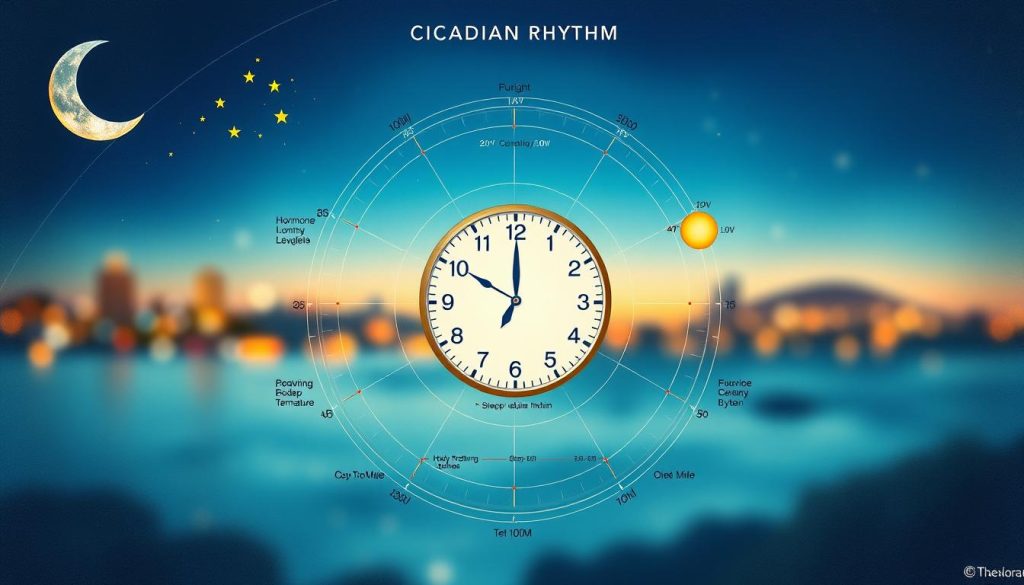
The Role of the Biological Clock
Your master biological clock is in a tiny brain region called the suprachiasmatic nucleus. This area has about 20,000 neurons that act as your body’s timekeeper. It receives light information from your eyes and coordinates timing throughout your system.
This central clock sends timing signals to peripheral clocks in organs like your liver and heart. Each organ has its own timing system that responds to the master clock’s signals. This creates a network of timekeepers working together.
The biological clock affects hormone production, alertness, digestion, and immune system function. These rhythms ensure that different body processes happen at the best times.
Key Functions of Circadian Rhythms
Your circadian rhythms regulate many essential functions for health and well-being. Sleep is a key example, as it follows a predictable daily pattern. Most people naturally feel sleepy between 9 PM and 11 PM and wake up between 6 AM and 8 AM.
Body temperature also follows circadian patterns, reaching its lowest point around 4 AM and peaking in early evening. Your blood pressure, heart rate, and hormone levels all fluctuate according to these rhythms. Even your cognitive performance varies throughout the day in predictable ways.
These rhythms control when your body produces digestive enzymes and when your metabolism runs most efficiently. This is why eating late at night can disrupt your natural patterns and affect your health. Your immune system strength also varies according to circadian timing, influencing when you’re most susceptible to illness.
How Circadian Rhythms Affect Our Daily Lives
Your body has an internal clock that affects more than just sleep. It influences your mood, hunger, and overall health every day. Understanding how external cues shape these rhythms can help you work with your body, not against it.
Circadian rhythms are fascinating because they respond to outside signals while keeping their own schedule. Light, meal times, and social activities act as cues that keep your body in sync with the world. When these cues align, you feel more energetic, focused, and emotionally balanced.
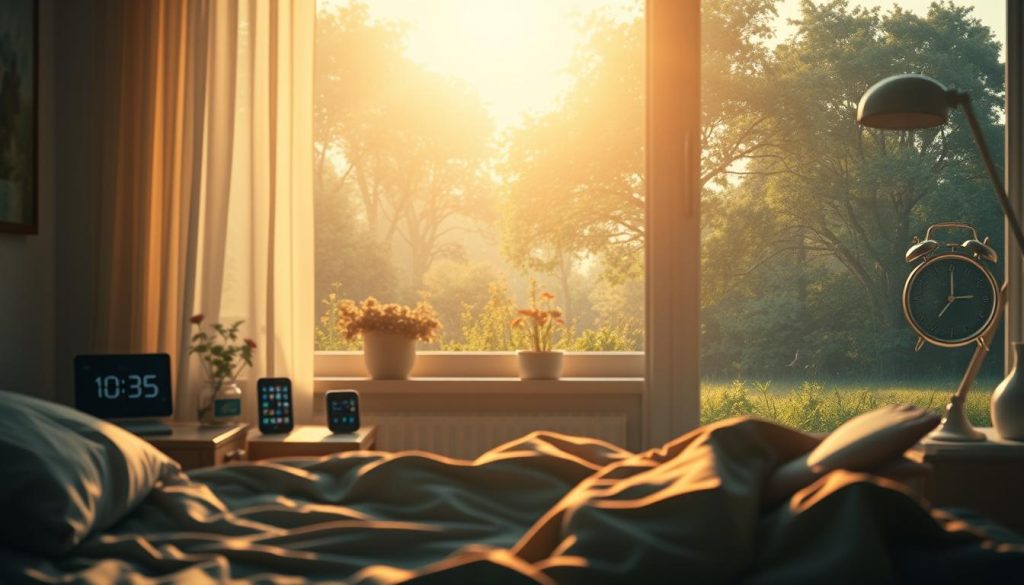
Sleep Patterns and Wakefulness
Your natural sleep-wake cycle is a key part of your daily life. Some people wake up early, while others prefer to stay up late. These preferences are part of your genetic makeup.
Melatonin plays a big role in when you feel sleepy or awake. It starts rising in the evening, telling your body it’s time to sleep. Morning light helps suppress melatonin, making you feel alert and ready to go.
Knowing your chronotype can improve your sleep. If you’re a night owl, trying to wake up early might make you tired and out of sync.
Impact on Mood and Mental Health
Your circadian rhythms affect your mood and mental health. Disruptions can lead to mood swings, low energy, and stress. Research links circadian disruption to depression and anxiety.
Seasonal affective disorder shows how light affects mood. Short winter days can disrupt your internal clock, causing sadness or lethargy. This is because light influences serotonin and melatonin.
Your body’s cortisol rhythm also follows a circadian pattern. It peaks in the morning to help you feel alert and declines throughout the day. Disruptions can affect your stress response and emotional stability.
Influence on Eating Habits
Your appetite and metabolism have their own circadian rhythm. This explains why you might feel hungrier at certain times. Hormones like ghrelin and leptin control hunger and follow your internal clock.
Eating late can disrupt these patterns and harm your sleep. Your digestive system slows down in the evening. Eating large meals then can affect your metabolism and rhythms. Many find better sleep and energy when they align their meals with their natural rhythms.
Meal timing can act as cues, reinforcing your circadian patterns. Regular meals signal to your body the time of day, supporting rhythm stability and better health.
The Science of Circadian Rhythm Regulation
Deep in our brains, a complex system controls our daily cycles. It uses cellular clocks and hormones to keep us in sync with nature. This system responds to the world around us while keeping our bodies stable.
Our circadian rhythms work through a master-slave system. The brain’s central clock controls other clocks in our body. This system helps us adjust to the 24-hour day-night cycle.
Learning about these systems has led to new treatments. Doctors now use chronotherapy to time treatments with our natural cycles. This can make treatments work better and have fewer side effects.
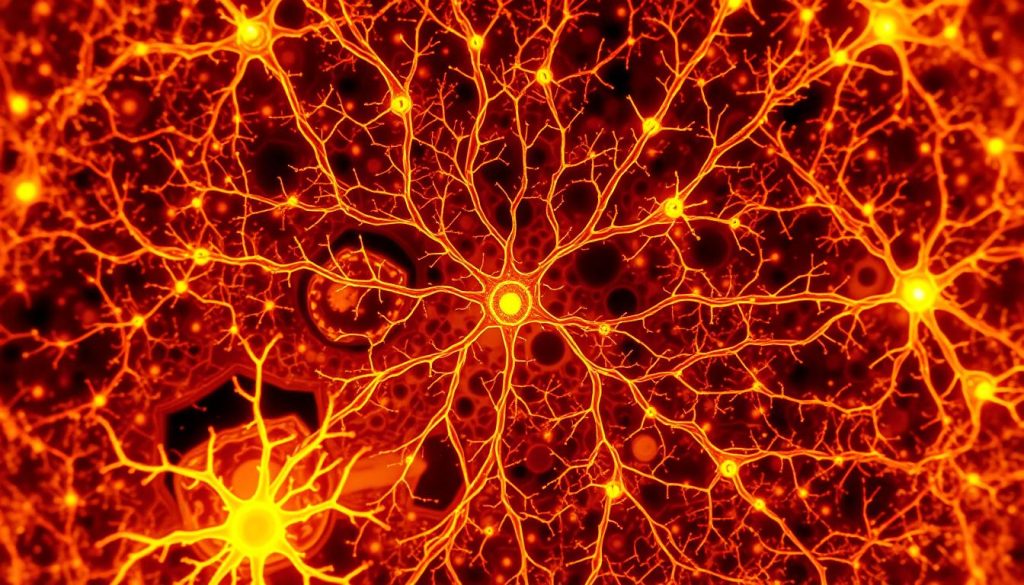
How Light Affects Circadian Rhythms
Light is key to keeping our internal clocks in sync. When light hits our eyes, it goes straight to the suprachiasmatic nucleus. This area of the brain controls our body’s timing signals.
Blue light, found in daylight and screens, affects us the most. Morning light helps us wake up. Evening blue light can make us stay up later.
The strength and length of light exposure matter too. Bright light in the day boosts our rhythms. Dim light in the evening helps us sleep.
The Role of Melatonin
Melatonin is our body’s sleep signal. It rises and falls with the day. The suprachiasmatic nucleus controls its production in the pineal gland.
Melatonin does more than help us sleep. It also controls our body’s rhythms, like temperature and blood pressure. It peaks between 2 and 4 AM.
Age and lifestyle can change melatonin levels. Older people and those who work shifts may have trouble sleeping.
Genetic Influence on Circadian Rhythms
Our genes shape our natural sleep times. Scientists have found genes that make us morning or night people. These genes affect when we’re most alert.
Family studies show that sleep patterns run in families. But, our genes aren’t the only thing that matters. Lifestyle choices can also shape our rhythms.
Studying genetics has helped in timing treatments. Doctors can now tailor treatments to fit our natural cycles. This is the future of circadian medicine.
Circadian Rhythms and Health
Modern research shows how bad sleep habits can lead to serious health issues. Your body’s internal clock controls when you feel awake or tired. It also helps keep you healthy.
Keeping your body’s natural rhythms in check is key to staying healthy. When these rhythms get out of sync, you face a higher risk of health problems.
Link Between Circadian Rhythms and Chronic Diseases
Studies link disrupted circadian rhythms to many chronic diseases. People with irregular sleep patterns are at a higher risk for serious health issues.
Diabetes is closely linked to circadian rhythms. Your body’s glucose processing changes throughout the day. Disrupted rhythms can lower insulin sensitivity, making it hard to keep blood sugar levels healthy.
Cardiovascular disease also ties to circadian health. Your blood pressure, heart rate, and blood clotting follow daily rhythms. Disrupted sleep can lead to:
- Higher blood pressure at night
- Increased inflammation in blood vessels
- Greater risk of heart attacks and strokes
- Irregular heart rhythms
Cancer research shows another worrying link. Your immune system fights off abnormal cells following circadian patterns. Disrupted rhythms can weaken this defense, leading to higher cancer rates.
Obesity often develops when eating patterns don’t match natural rhythms. Your metabolism slows down at night, making late-night eating more likely to cause weight gain. Chronotherapy helps people time their meals better for weight management.
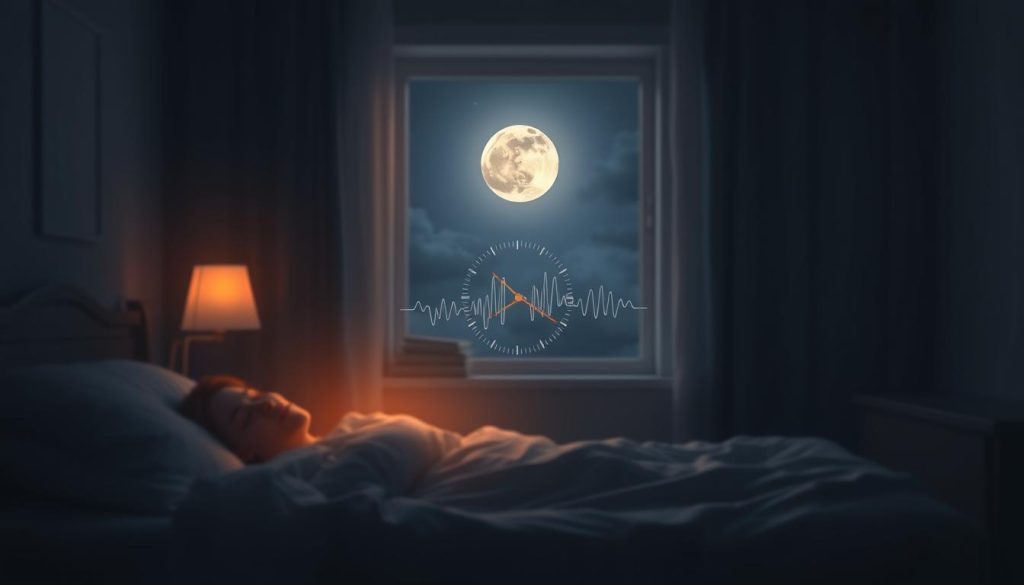
Strategies for Maintaining Healthy Rhythms
Practical steps can support your circadian health every day. These strategies help keep your internal clock running smoothly.
Light exposure is crucial for maintaining healthy rhythms. Get bright light in the morning, especially within the first hour after waking. Spend time outdoors during daylight hours when possible. Dim the lights in your home during evening hours.
Meal timing affects your circadian rhythms. Eat your largest meals earlier in the day. Avoid heavy meals within three hours of bedtime. Keep consistent meal times, even on weekends.
Sleep hygiene practices support natural rhythm maintenance:
- Go to bed and wake up at the same time daily
- Create a cool, dark sleeping environment
- Avoid screens for at least one hour before bed
- Limit caffeine intake after 2 PM
- Exercise regularly, but not close to bedtime
Chronotherapy techniques can help reset disrupted rhythms. This approach uses timed light exposure, melatonin supplements, and scheduled activities to restore healthy patterns. Many sleep specialists now use chronotherapy to treat various sleep disorders.
The Effects of Shift Work on Health
Shift work poses unique challenges for maintaining healthy circadian rhythms. Millions of Americans work non-traditional hours, including healthcare workers, emergency responders, and manufacturing employees.
Night shift workers face increased risks for several health problems. Their bodies must stay awake when natural rhythms promote sleep. This constant fight against biology takes a toll over time.
Common health issues among shift workers include:
- Higher rates of diabetes and metabolic disorders
- Increased cardiovascular disease risk
- Greater likelihood of depression and anxiety
- Weakened immune system function
- Digestive problems and stomach ulcers
Rotating shift schedules prove especially challenging. Your body never fully adapts to one schedule before it changes again. This constant disruption makes it harder to maintain any stable rhythm.
If you work shifts, certain strategies can help minimize health impacts. Try to maintain consistent sleep schedules on your days off. Use blackout curtains and white noise machines to improve daytime sleep quality. Consider chronotherapy approaches to help your body adapt more effectively.
Some employers now recognize the importance of circadian health for shift workers. They’re implementing better lighting systems and more gradual schedule rotations. These changes help reduce the negative health effects of non-traditional work hours.
Disruptions to Circadian Rhythms
Our lifestyles often clash with natural patterns, causing disruptions to our circadian rhythms. Artificial lighting and demanding work schedules are big challenges. These can really affect our well-being.
Knowing what disrupts our internal clocks helps us make better choices. We can also find ways to lessen the negative effects when disruptions happen.
Common Causes of Circadian Disruption
Many factors in our daily lives mess with our natural rhythms. Artificial light, especially blue light from screens, confuses our clocks. This can delay melatonin production and make it hard to fall asleep.
Shift work is a big challenge to our circadian health. Workers who switch between day and night shifts fight their natural sleep-wake cycles. This constant battle can cause chronic misalignment.
Social jet lag affects many who have different sleep schedules on weekends. Going to bed late on weekends and waking up early on Monday creates a mini jet lag every week.
- Irregular meal timing that confuses peripheral clocks
- Excessive caffeine consumption, especially later in the day
- Inconsistent sleep and wake times
- Late-night exercise that stimulates alertness
- Alcohol consumption that fragments sleep quality
Consequences of Irregular Sleep Patterns
Irregular sleep patterns have many negative effects. When our rhythms are disrupted, our thinking gets worse. We struggle to focus, react slowly, and make poor decisions.
Mood changes also happen with disrupted sleep. We can feel irritable, anxious, and depressed. Our brain’s emotional systems need consistent timing.
Long-term irregular sleep harms our health. Our immune system weakens, making us more prone to illness. Metabolic processes get disrupted, leading to weight gain and diabetes risk.
Our heart health also suffers. Blood pressure control gets worse, raising the risk of heart disease with long-term misalignment.
Coping with Jet Lag
Jet lag is a common circadian disruption. It happens when we travel across time zones faster than our bodies adjust. The more time zones we cross, the worse the jet lag.
Preparation before traveling can help. Start adjusting your sleep schedule a few days before. Light exposure timing is key during this time.
Light therapy during and after travel helps adjust faster. Seek bright light in the morning and avoid it at night. This resets your biological clock.
Eating meals on your destination’s schedule also helps. This gives your body more cues for adjustment.
Other strategies for managing jet lag include:
- Stay hydrated and avoid too much alcohol
- Take short naps (20-30 minutes) if needed, but avoid long daytime sleep
- Use melatonin supplements wisely
- Keep regular exercise routines in the new time zone
- Be patient, as adjustment takes one day per time zone crossed
Remember, traveling east is harder than west. Advancing our clocks forward is tougher than delaying them. Our natural period is slightly longer than 24 hours.
Future Research in Circadian Rhythm Biology
The field of circadian rhythm biology is at an exciting point. Scientists are finding new details about our internal clocks. These findings could change how we think about health and wellness in the future.
Breakthrough Discoveries in Clock Science
Recent studies show that almost every organ has its own clock. These clocks work with the brain’s main clock. Scientists are studying how these clocks talk to each other.
New research shows that circadian rhythms impact wound healing, immune function, and how we process medicines. This is a big discovery.
Medical Applications on the Horizon
Circadian medicine is becoming a key tool in treating diseases. Doctors are learning that when treatments are given matters a lot. Cancer therapies work better at certain times of day.
Mental health treatments are also improving when they match our natural rhythms. This could change how we care for patients.
Technology’s Double-Edged Impact
Modern technology brings both challenges and solutions for our circadian health. Blue light from screens can mess with our sleep. But technology also offers ways to track and improve our rhythms.
Wearable devices and apps help us monitor and adjust our daily routines. This could lead to better health outcomes in the future.

